While many people believe that they have the capacity to define what art is, it is much harder to pin down than it might seem. The general definition of fine arts says, only, that it is the production of “beautiful objects.”
To add more substance behind this definition, we can look at the three most common branches of art: visual arts, performing arts and literature. While there is a lot of borrowing that occurs between the three disciplines, it is the first two that are often used in referring to a master or bachelor of the arts.
The most common type of art degree you are likely to receive in any university will be either a bachelor of fine arts, or BFA, and a master of fine arts, an MFA. Like the definition of fine arts, the subjects that these degrees cover is also quite broad. People who are receiving degrees in this field can be anything from art theorists to ceramics-makers.

Overview of Types of Arts Degrees in the UK
Here's a general overview of the types of art degrees available which we will go into further detail in throughout the article:
| Degree Type | Programme Description | Universities and Links |
|---|---|---|
| Bachelor of Fine Arts (BFA) | Focuses on the practice of creating visual art, including painting, sculpture, and printmaking, with an emphasis on developing artistic skills. | University of Oxford, University of the Arts London |
| Bachelor of Arts (BA) in Art History | Studies the history and development of art across different cultures and periods, analyzing artistic movements and significant works of art. | University of Cambridge, University of St Andrews |
| Bachelor of Arts (BA) in Graphic Design | Teaches the principles of design, typography, and visual communication, preparing students for careers in advertising, branding, and web design. | University of the Arts London, Kingston University London |
| Bachelor of Arts (BA) in Illustration | Focuses on drawing and visual storytelling, training students to create illustrations for books, magazines, and digital media. | Kingston University London, Falmouth University |
| Bachelor of Arts (BA) in Photography | Covers technical and creative aspects of photography, including digital and traditional techniques, studio work, and visual storytelling. | University of Westminster, University for the Creative Arts |
| Bachelor of Arts (BA) in Fashion Design | Emphasizes the design and creation of clothing and accessories, including courses in textiles, pattern making, and fashion illustration. | London College of Fashion, Central Saint Martins |
| Bachelor of Arts (BA) in Animation | Teaches the principles of animation, including character design, storyboarding, and digital animation techniques. | University of Hertfordshire, Bournemouth University |
| Bachelor of Arts (BA) in Digital Media | Covers various forms of digital media production, including video, web design, and interactive media, preparing students for the digital industry. | University of Leeds, Ravensbourne University London |
| Bachelor of Arts (BA) in Art and Design | Provides a broad education in visual arts and design, allowing students to explore different media and techniques. | Royal College of Art, University of Edinburgh |
| Bachelor of Arts (BA) in Theatre Design | Focuses on the design of theatrical productions, including set, costume, and lighting design, as well as the technical aspects of production. | University of the Arts London, Royal Welsh College of Music & Drama |
Fine Arts Degrees (BFA)
Being a scholar in the fine arts will often mean encountering both new movements as well as new artists that challenge your ideas, giving you access to a wide array of ideas. This is reflected in the diversity of subjects within fine arts programs.
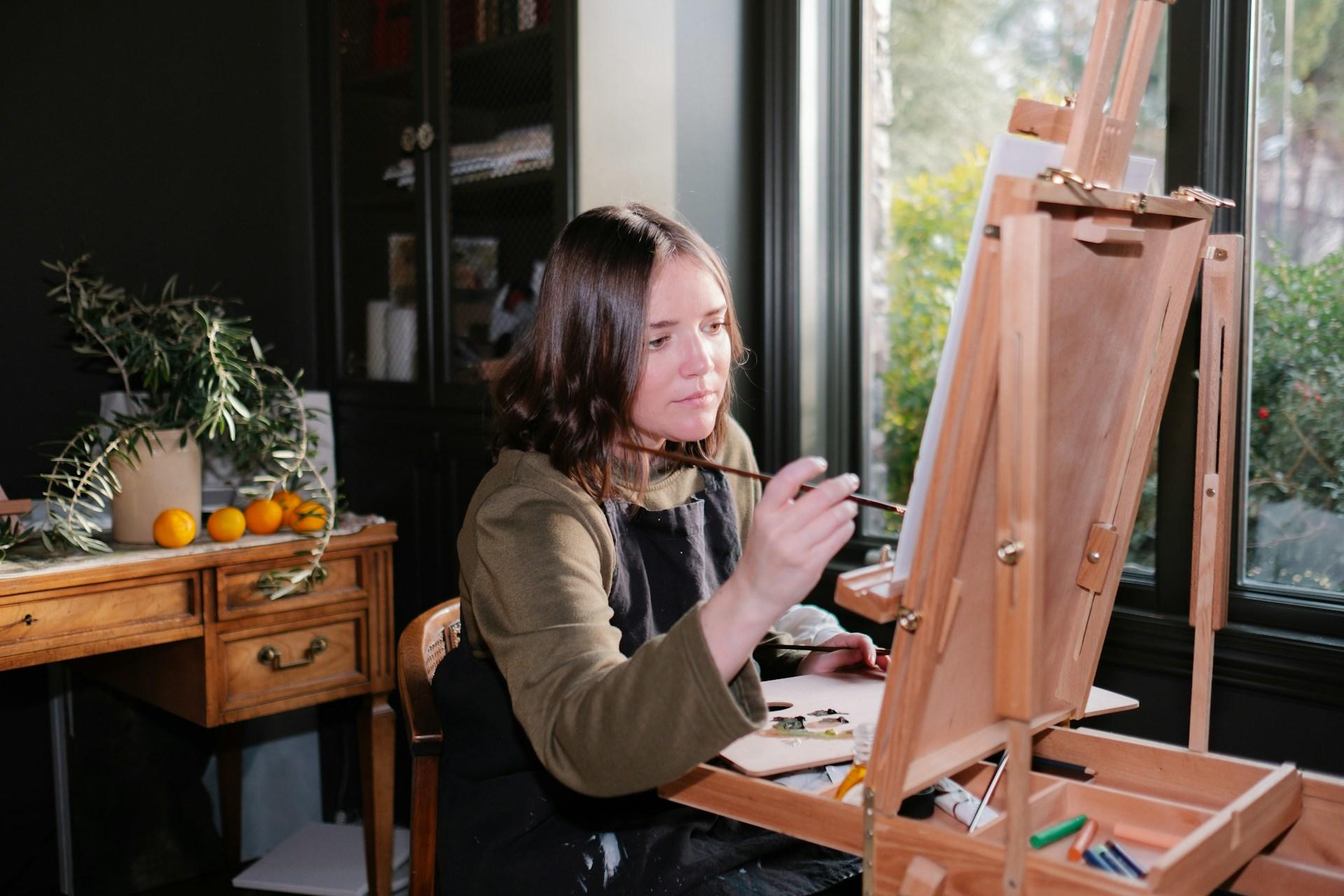
A Bachelor of Fine Arts lasts between 3 to 4 years, depending on the programme and institution, and is considered a considered a professional degree, preparing graduates for careers as practicing artists, designers, or performers; as well as a solid foundation for graduate studies in the arts, such as a Master of Fine Arts (MFA).
A Bachelor of Fine Arts (BFA) is an undergraduate degree for students pursuing a professional education in the visual or performing arts. This degree is designed to provide comprehensive training in various artistic disciplines, focusing heavily on the practical and technical aspects of art-making.
Here are some ideas of some fields that you can specialise in and can help you narrow down your future college of art:
- Sculpture
- Printmaking
- Art design
- Drawing and Painting
- Studio arts
- Architecture
- Digital media
What are the key features of a BFA?
- Specialisation: Students typically choose a specific area of focus, such as painting, sculpture, photography, graphic design, acting, dance, or film.
- Curriculum:
- Studio Practice: A significant portion of the curriculum is dedicated to hands-on studio work, allowing students to develop their skills and create a substantial body of work.
- Art Theory and History: Courses in art history, theory, and criticism provide a contextual understanding of art movements, techniques, and influential artists.
- Technical Training: Emphasis on developing technical skills and mastering various artistic techniques and tools.
- Portfolio Development: Students create and refine a portfolio of their work, which is essential for career advancement or further education.
Potential Careers with a BFA:
- Professional Artist (e.g., painter, sculptor, photographer)
- Graphic Designer
- Art Director
- Animator
- Illustrator
- Art Teacher or Educator
- Curator or Gallery Manager
- Actor, Dancer, or Performer in Theater and Film
Bachelor of Arts Degrees

In the UK, a Bachelor of Arts (BA) is an undergraduate degree awarded to students who complete a program of study in the liberal arts, humanities, social sciences, or other arts-related fields. Typically, a BA degree in the UK takes three years of full-time study to complete, though in Scotland, it usually takes four years.
A Bachelor of Arts (BA) is an undergraduate degree that provides a broad education in the liberal arts and sciences. The BA degree typically includes a combination of general education courses, major-specific courses, and electives, allowing students to explore various disciplines and develop a well-rounded academic foundation.
The curriculum of a BA in art-related courses is structured to offer a balance between practical studio work and academic study. Students engage in hands-on creation and experimentation with different media and techniques, while also studying art history, theory, and criticism to understand the broader context of their work.
Many students interested in pursuing an art-related degree opt for a BA because of the flexibility it offers. Students can often choose from a wide range of electives, allowing them to tailor their education to their interests and career aspirations. They may also have the opportunity to pursue joint honours degrees, combining their art studies with another discipline, such as history, literature, or sociology.

BA in Art-Related Subjects
There are BA degrees specifically focused on art-related subjects. These degrees combine the broad liberal arts education with specialised training in various fields of art and design. Here are some common BA degrees in art-related subjects:
| Degree Type | Programme Description | Universities Offering Programme |
|---|---|---|
| BA in Fine Arts | Emphasizes the development of skills in painting, sculpture, and other visual media, combining studio practice with courses in art history and theory. | University of Oxford, University of the Arts London |
| BA in Art History | Studies the history and development of art across different cultures and periods, analyzing artistic movements and significant works of art. | University of Cambridge, University of St Andrews |
| BA in Graphic Design | Teaches the principles of design, typography, and visual communication, preparing students for careers in advertising, branding, and web design. | University of the Arts London, Kingston University London |
| BA in Illustration | Focuses on drawing and visual storytelling, training students to create illustrations for books, magazines, and digital media. | Kingston University London, Falmouth University |
| BA in Photography | Covers technical and creative aspects of photography, including digital and traditional techniques, studio work, and visual storytelling. | University of Westminster, University for the Creative Arts |
| BA in Fashion Design | Emphasizes the design and creation of clothing and accessories, including courses in textiles, pattern making, and fashion illustration. | London College of Fashion, Central Saint Martins |
| BA in Animation | Teaches the principles of animation, including character design, storyboarding, and digital animation techniques. | University of Hertfordshire, Bournemouth University |
| BA in Digital Media | Covers various forms of digital media production, including video, web design, and interactive media, preparing students for the digital industry. | University of Leeds, Ravensbourne University London |
| BA in Art and Design | Provides a broad education in visual arts and design, allowing students to explore different media and techniques. | Royal College of Art, University of Edinburgh |
| BA in Theatre Design | Focuses on the design of theatrical productions, including set, costume, and lighting design, as well as the technical aspects of production. | University of the Arts London, Royal Welsh College of Music & Drama |
BA in Film Studies and Film School Degrees
While specialising in film can come with the same title as other fine arts degrees, depending on what kind of university you attend, film school degrees offer an incredible range of art programs.
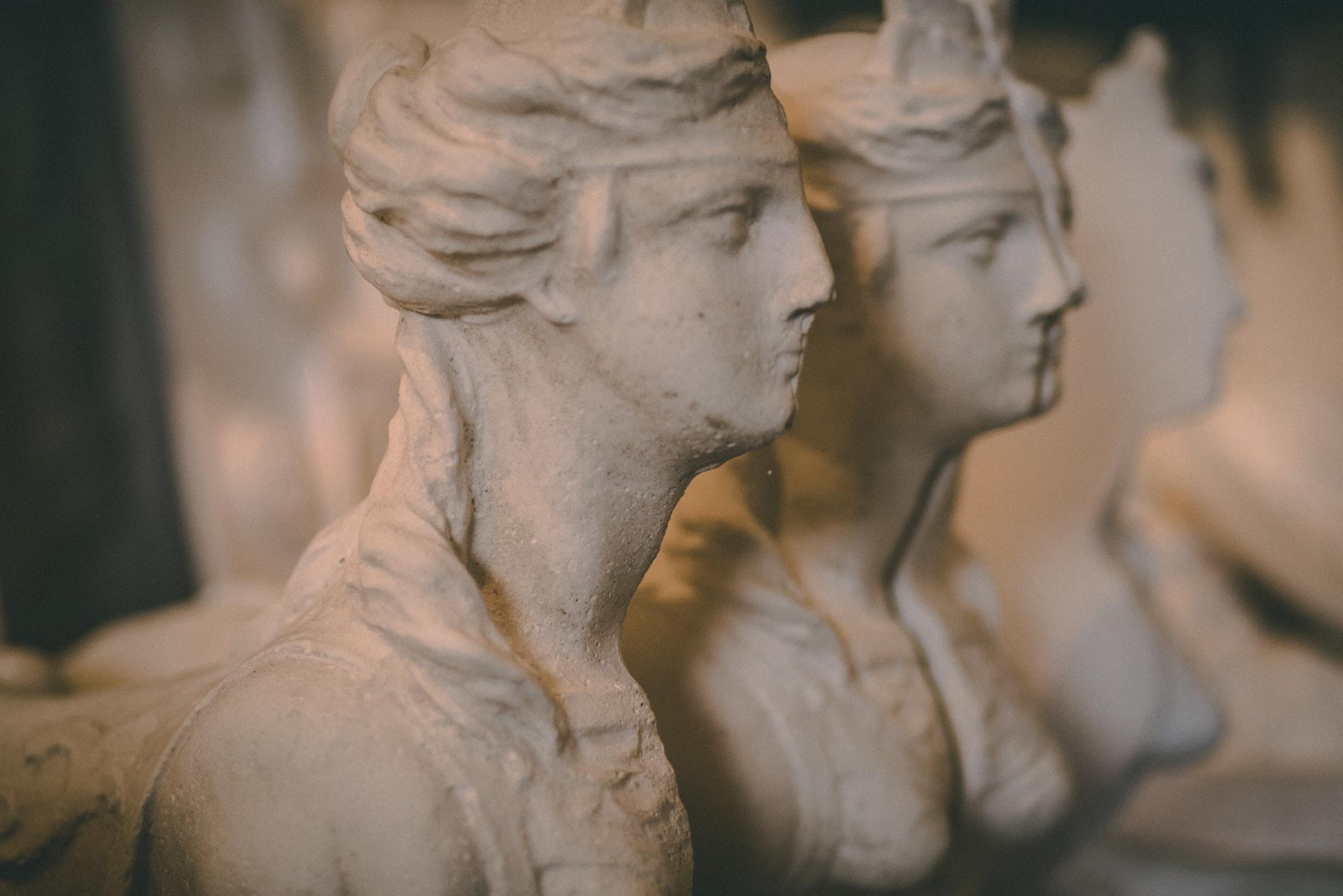
While some young artists choose to attend art universities dedicated to film and film production, students can also receive degrees in subjects like film theory from liberal arts colleges.
The types of degrees you can expect from film schools cover traditional topics like editing, other technical skills, and screenwriting – or some other, contemporary subjects like game art.
Some programs that might be worth checking out if you’re interested in what film school can offer you are:
- Computer animation
- Film and television production
- Photography
BA in Art History
Art history degrees are ideal for people who are interested in curatorial work, museums, galleries or art auctions. While many people often think of art degrees as pertaining to creative fields, it can also mix with subjects such as business, finance and history. If you are interested in how these two worlds interact, specializing in art history – regardless of your artistic inclination – can be for you.
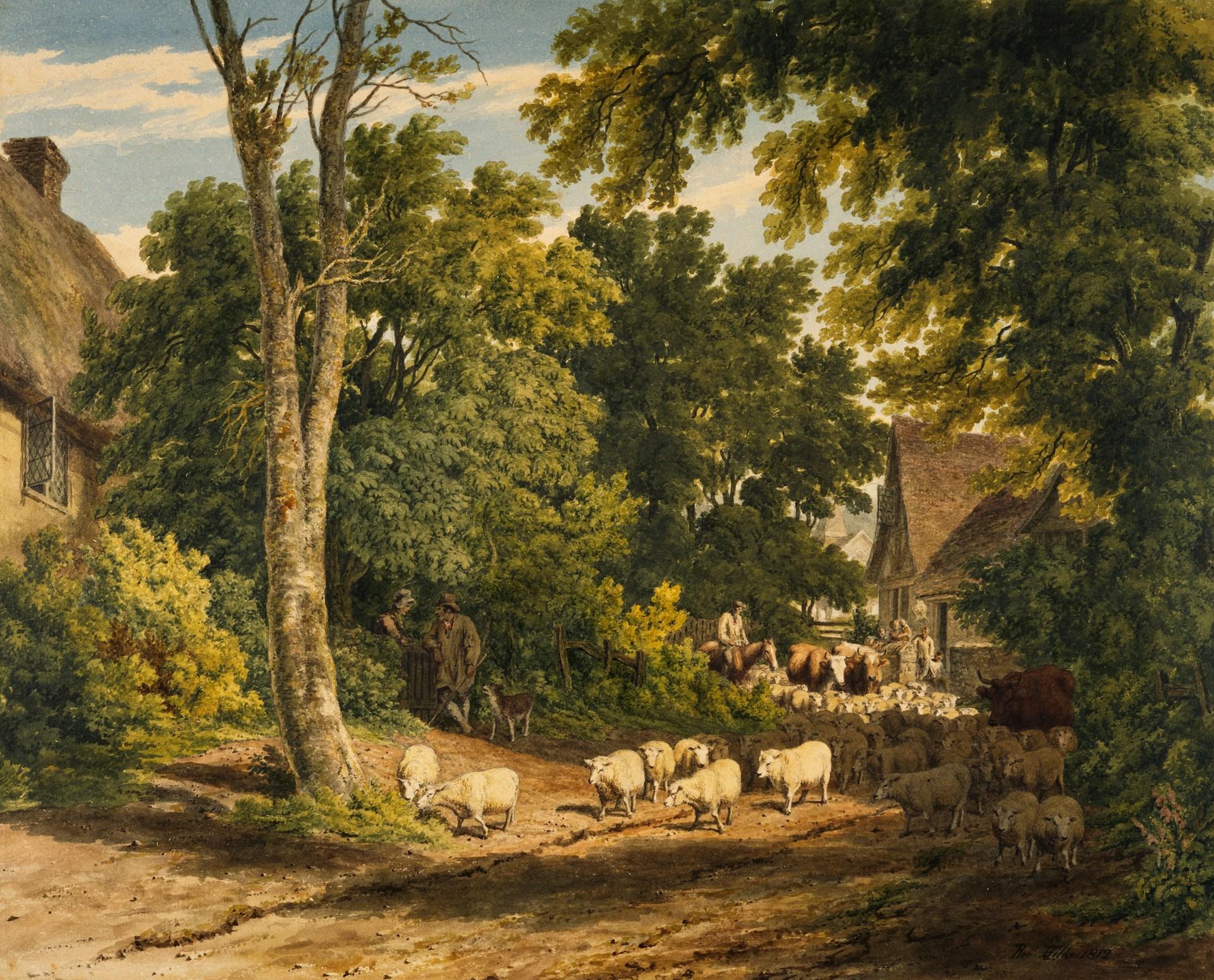
Art history degrees and the courses they offer will differ from program to program. Some degrees structure their degrees around specific movements in art while others allow for more of a focus on one specific period in art history.
Art History is a field as broad as any in the art world, so make sure to identify which moment in art history – baroque, pop art – interests you the most. Think an art history degree is for you? Take a look at the table below with some of the top art history programmes in the UK:
| Degree Type | Programme Description | Universities Offering Programme |
|---|---|---|
| BA in Art History | Focuses on the history and development of art across various cultures and periods. | University of Cambridge |
| BA in Art History | Studies artistic movements, significant works, and the social and cultural contexts of art. | University of St Andrews |
| BA in Art History | Provides a comprehensive understanding of art history and its methodologies. | University College London (UCL) |
| BA in Art History | Combines theoretical study with practical experience in analyzing art. | University of Edinburgh |
| BA in Art History | Emphasizes critical thinking and visual analysis skills. | University of York |
| BA in Art History | Prepares students for careers in museums, galleries, and cultural institutions. | University of Glasgow |
Search for an art tutor here.
Art And Design Degree Programmes
Art and Design degree programmes in the UK cover a wide range of disciplines within the visual arts, providing students with both practical skills and theoretical knowledge. These programmes are designed to foster creativity, technical proficiency, and critical thinking.
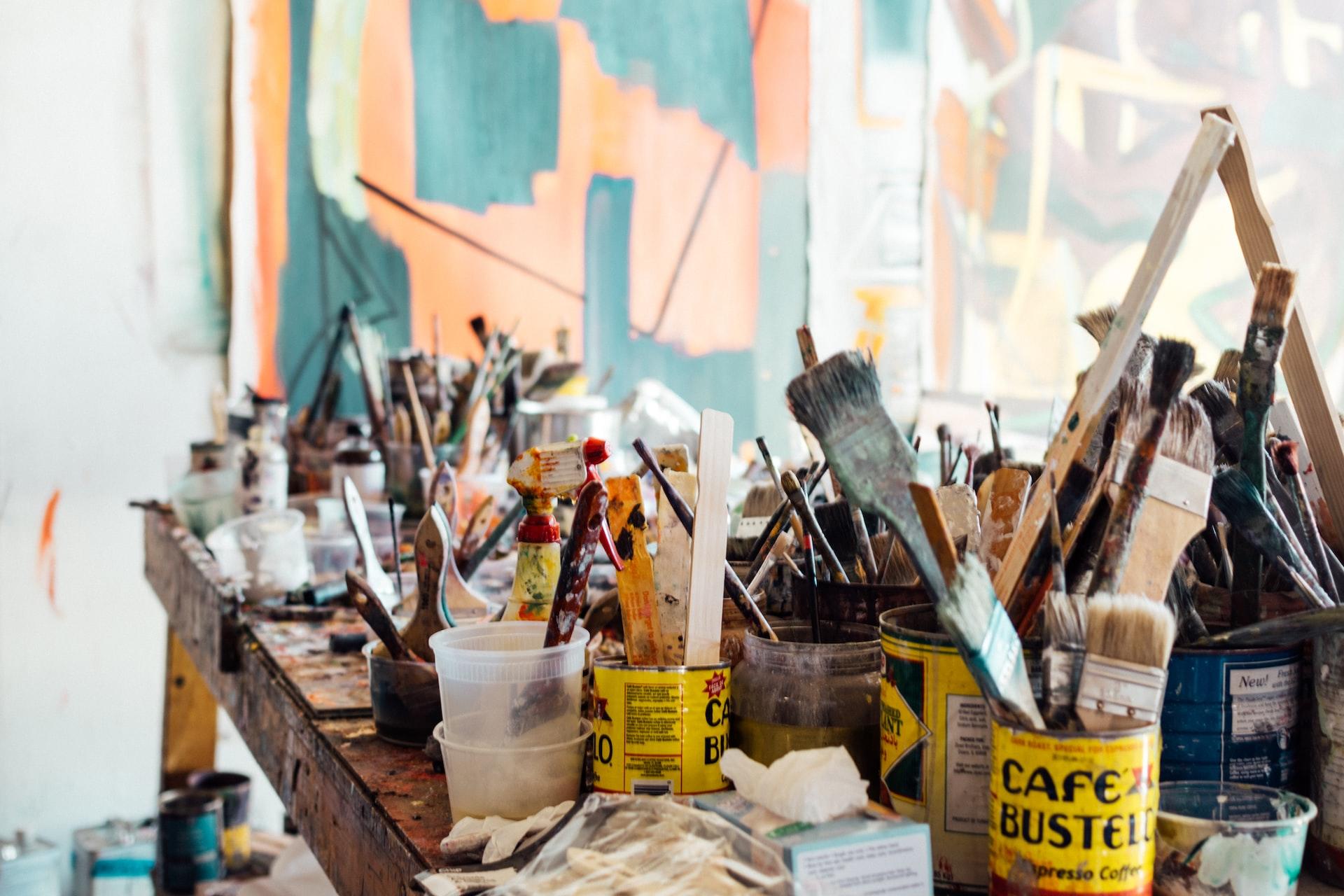
It’s common for a layperson to make a distinction between art – painting, sculpting, photographing and performing, and design – fashion, architecture, furniture and so on but, in reality, the line between art and design is nowhere near so clear-cut.
Find art classes Edinburgh here.
Your course syllabus will reflect the direction you intend to take in your studies. For instance, if art history calls to you, your classes would be more lecture-based and angled more heavily toward your writing papers.
In all cases, expect your first year of art studies as an undergraduate to include art fundamentals. These include concepts of visual art as well as design. If your study programme is studio-based – sculpting, painting and the like, you can expect instruction on using colour for maximum effect and further development of your drawing skills. You will also delve deeper into the concept and execution of three-dimensional work.
Once finished with your foundation year, you can focus your studies on the branch/type of art you wish to practise, anything from printmaking to painting to fashion design and even performing. As you progress through your course of study, you will be introduced to new techniques and materials and even theories that drive art creation.
You can check for the best art classes near me here.
Types of Art & Design Subjects
Getting an art and design degree can be different from regular degrees in fine arts because of their highly interdisciplinary nature – coordinating subjects like the visual arts and physical composition. Because the majority of design products are physical, many young artists who go into this field can also open up their own retail or artisanal store.
Here are some of the most common programs you are likely to be awarded if you go to a college of art and design.
Fashion Design
While fashion design subjects can seem like a narrow field, composed of only designing and producing apparel – fashion design degrees encompass everything related to the fashion industry. The subjects that it covers can range anywhere from jewellery making and graphic design to illustration and printmaking.
This video from one of London Collage of Fashion's shows provides a small insight into what it might be like to study design with a focus on fashion.
While you are likely to find courses within schools of art that are related to the fashion world, many students interested in this field normally choose to attend a university that is specifically for fashion design. One such example is the London College of Fashion, which offers undergraduate degrees in subjects like design or product and furniture design.
Find more Art classes Glasgow here.
Animation
Students who study animation can come from a wide range of subjects. Some students who major in film only discover, through the course of their program, about their passion for animation. Regardless of the motivation, students who enrol in animation programs will be taking courses like graphic design, multimedia and more.
If you’re interested in getting a degree in animation, it can be useful to start by checking out De Montfort University or the University of Edinburgh. Majoring in animation is also a great idea if you’d like to study abroad, as many of the world’s greatest universities have reputable programs in animation.
Graphic Design
Graphic design is one of those jobs that bleed into many different aspects of our lives. For example, while there is a team of graphic designers working behind the latest video game – they can also be found working for companies and organizations.
This art program is also great for people who enjoy freelancing. Some of the best universities for graphic design are the University of Brighton and Arts University Bournemouth. Graphic design is for people who are seeking to combine their two passions: computer software and visual arts.
Interior Design
While you may not realise it, the design of everything from hospital rooms to malls have been designed with a specific purpose or goal in mind. The rooms and spaces you encounter on a daily basis are studied in the subject of interior design.

Interior design requires the study of many different subjects, and is closely linked to the field of project management. The Royal College of Art offers courses like 3D design or branding and communication.
Photography
Thanks to the explosion of ever-more affordable smartphones, photography is now one of the most accessible fields. The advantageous part about studying photography relative to other arts subjects is that many beginners courses and art programs in high school or at the undergraduate level can sometimes lend cameras and equipment out to their students.
Depending on what type of photography you’d like to pursue, you’ll have to get different equipment. For example, the types of cameras needed for wildlife photography are naturally going to be different from the ones used at an event’s photography company. Falmouth University and the University of Gloucestershire both offer bachelor programs in photography.
Architecture
Programs in architecture will be slightly different from any of the other art and design degrees. While many people don’t often consider architects to be fine artists, architecture has often either followed or preceded all of the major movements in art. Incidentally, this is also why architecture is so important for art history.
Getting a degree in architecture will mean that, for the majority, you will be awarded with a Bachelor of Science (BS), dependent on what field you decide to specialise in. Some of the topics you will be able to study in this field are Sustainable Design, Metropolitan Design or Industrial Design. If you’re interested in checking out some degree programs in the UK, make sure to check out the University of Sheffield and Newcastle University.
Which Degree is Best in Arts?
That question would be better asked like this: why are you pursuing a degree in Arts?
The obvious answer would be that you have an overwhelming urge to create art and wish to refine and legitimise your skills. Perhaps you have an innate talent for bringing about objects of beauty or you have a spiritual need to make the world a more beautiful place.
All of these are great reasons to major in Art and Design but other factors come into play when considering which Arts degree plan to choose? This table will help you to decide what kind of factors are important to consider when choosing what degree to take:
| Factor | Description | Relevant Degree Types |
|---|---|---|
| Income Potential | The potential earnings vary greatly depending on the type of art you create. Fine artists may struggle financially until they reach the top of their field, while graphic artists and fashion designers can expect higher starting salaries. | Fine Arts, Graphic Design, Fashion Design, Architecture |
| Aptitude (Talent) | Your natural talent and interest in different media play a crucial role. Art and Design degrees offer flexibility to explore various media, allowing you to find the best fit for your creative abilities. | Fine Arts, Digital Media, Animation, Illustration, Photography |
| Personal Preference | The best degree is the one that aligns with your personal goals and interests. Consider what medium you enjoy working with and what kind of artistic expression fulfills you. | All art-related degrees (Fine Arts, Graphic Design, Fashion Design, Digital Media, Animation, Illustration, Photography) |
| Career Goals | Consider the type of career you want post-graduation. Higher-paying careers include graphic design, fashion design, and architecture, while fine arts may be more fulfilling creatively but less lucrative initially. | Graphic Design, Fashion Design, Architecture, Fine Arts |
| Flexibility | Art and Design degrees provide the flexibility to explore different artistic media. This is ideal for students who want to experiment with various forms of art before specializing in one area. | Fine Arts, Digital Media, Animation, Illustration, Photography |
A Bachelor of Arts (BA) and a Bachelor of Fine Arts (BFA) are both undergraduate degrees, but they differ significantly in focus and structure. A BA in art typically provides a broader liberal arts education, combining art courses with general education subjects such as humanities, social sciences, and natural sciences.
In contrast, a BFA focuses more intensively on practical and technical training in the arts, dedicating a larger portion of the curriculum to studio work and artistic practice. The BFA is designed for students seeking professional careers as artists or designers, with a stronger emphasis on developing specific artistic skills and creating a substantial portfolio.
Types of Jobs You Can Get with an Art Degree
It can be difficult to find out what you’d like to do as your career, especially because of the fact that today’s economy is influencing people to have more than one career over the span of their working lifetime.
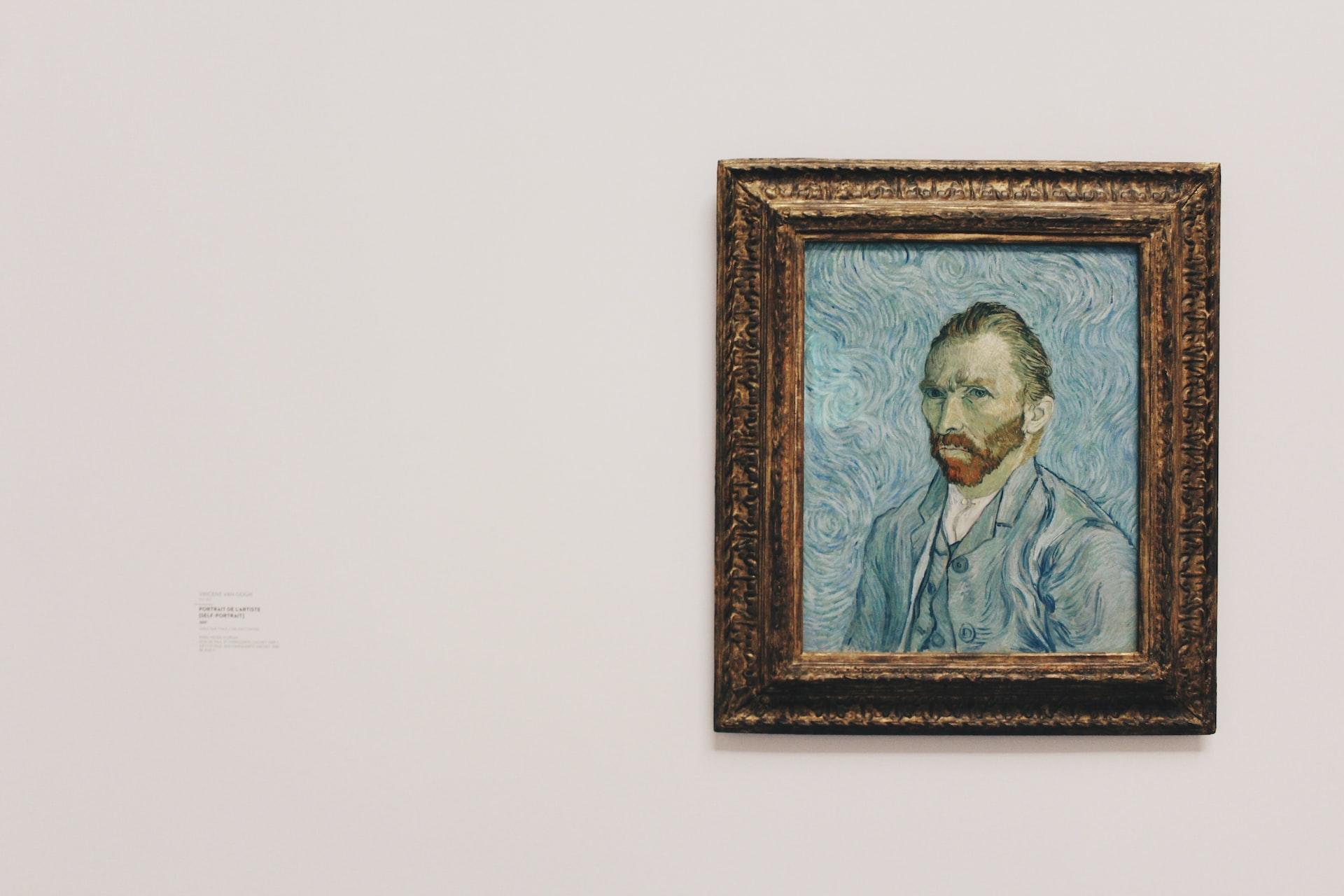
What is always good to be, however, is prepared – be sure to check out what types of jobs and salaries your degree can get you with the right preparation.
Here are some of the most common professions that those with an arts degree or arts-related degree can enter:
Fine Arts Careers:
- Painter
- Sculptor
- Illustrator
- Printmaker
- Art Teacher/Educator
- Gallery/Museum Curator
- Art Historian
- Conservator/Restorer
- Art Therapist
- Art Director
Design Careers:
- Graphic Designer
- Web Designer
- UI/UX Designer
- Fashion Designer
- Interior Designer
- Industrial/Product Designer
- Exhibition Designer
- Textile Designer
Digital Arts Careers:
- Animator
- Video Game Designer
- Visual Effects (VFX) Artist
- Digital Media Specialist
- Multimedia Artist
- Photographer
Performance Arts Careers:
- Actor
- Dancer
- Choreographer
- Theatre Director
- Set/Costume Designer
Writing and Publishing Careers:
- Art Critic/Reviewer
- Creative Writer
- Copywriter
- Content Creator/Editor
Other Creative Careers:
- Art Consultant
- Advertising Creative
- Event Planner
- Art Dealer
- Freelance Artist
Find art classes Manchester now.
Arts Administration
While you may have never heard of the field of arts administration before, you have definitely been at the receiving end of their services. Jobs in this world can be found anywhere from NGOs, galleries to museums. This field doesn’t so much deal with the production of your own art but of facilitating the movement of art from people and places to another.
Some of common careers you are likely to encounter in this field are in art institutions, national libraries, or galleries. Arts administration can combine your love of art and other subjects such as finance, project management and art history.
If you’re one of the lucky few with a talent for creating art, no one could fault you for making career choices based on money but, please, keep making our world more beautiful in any way you can!
Discover various online Art courses here today.
Summarise with AI:

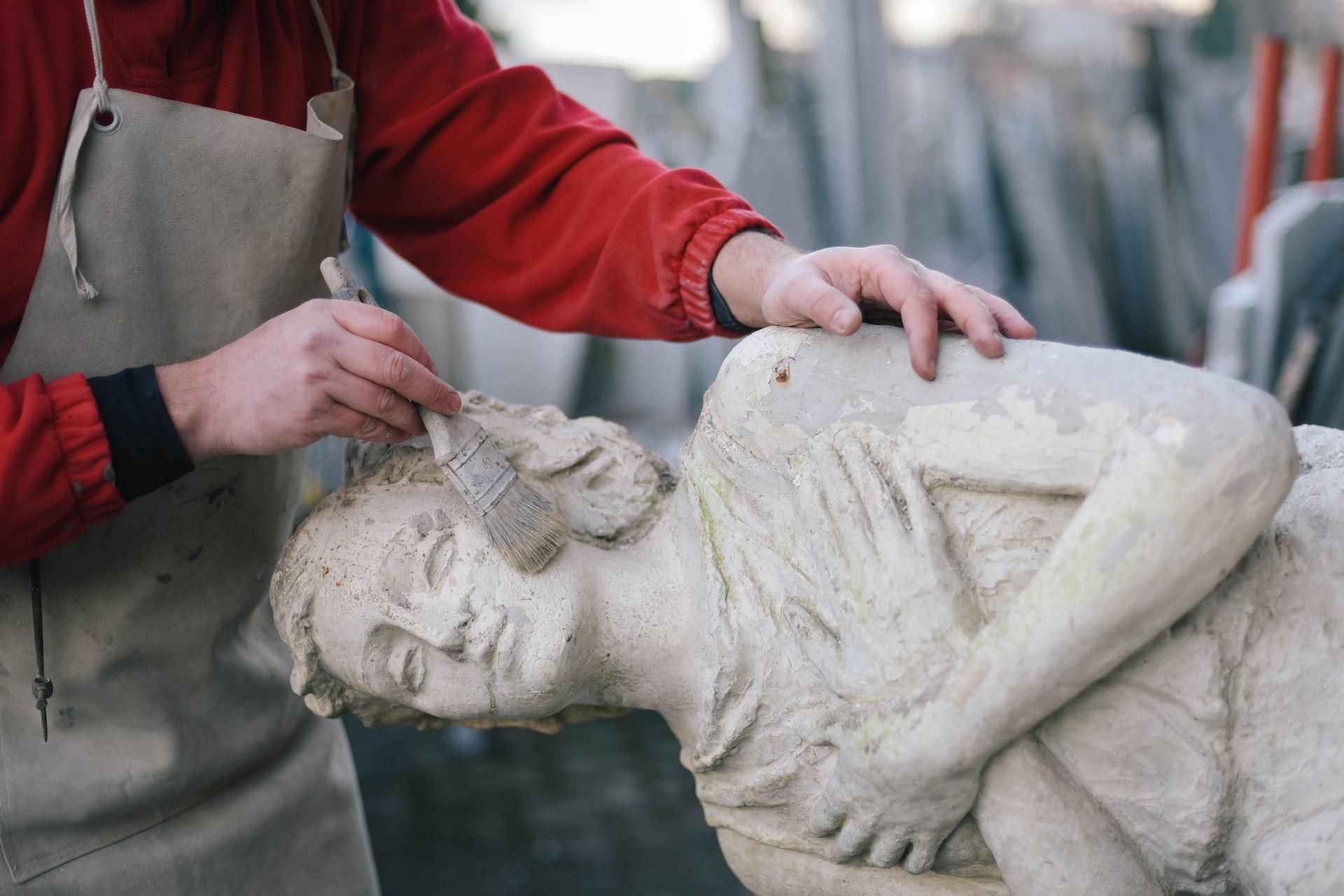






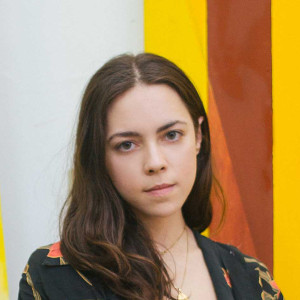






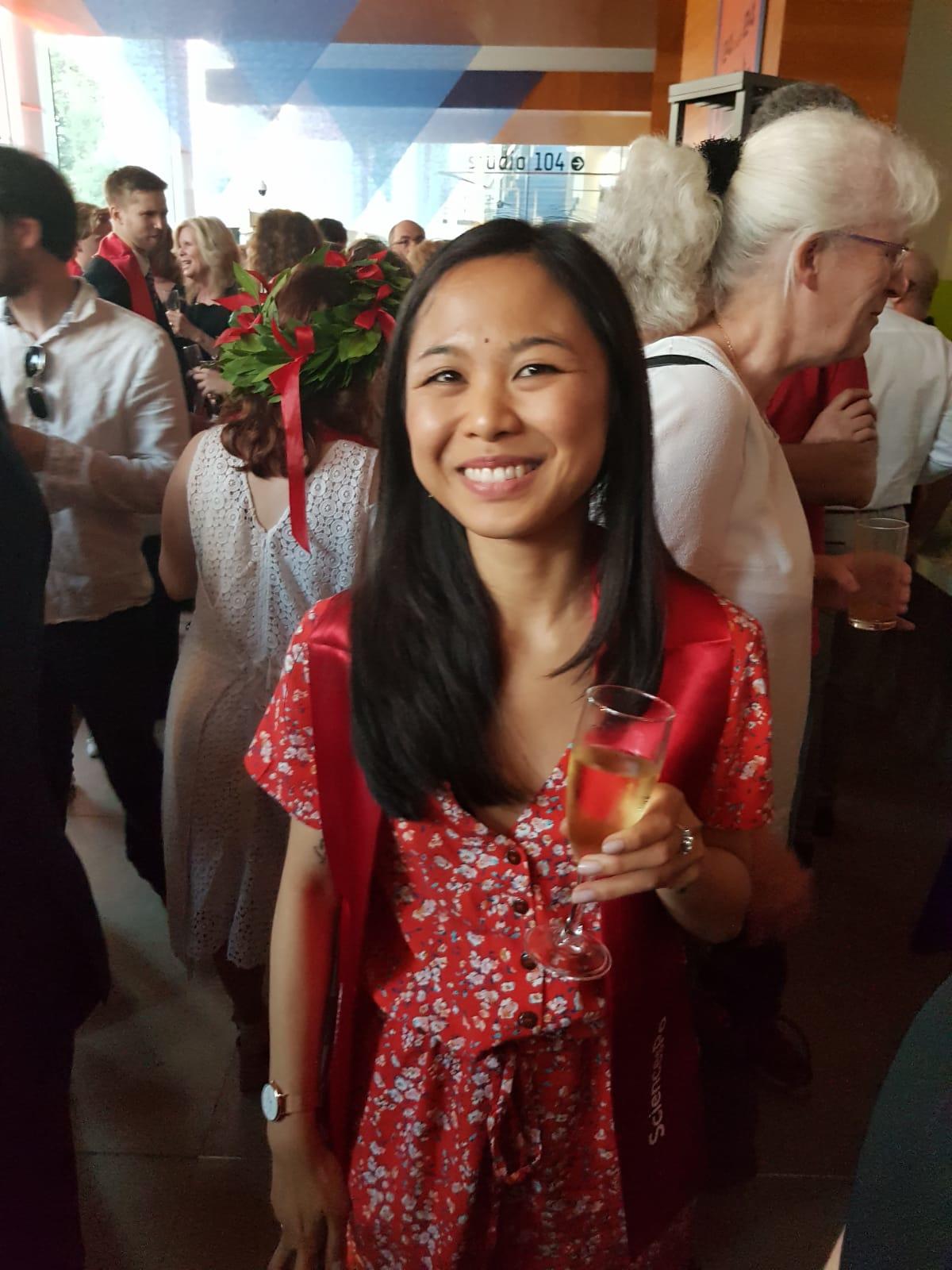
Thankyou for the information it has helped me alot.
Brilliant & current up to date info 👏🏽 very very educational & informative for using to add weight to a training course I’m hoping to offer in the making/gift world (I will be naming you next to the info I have gained from this site)
I mean I like it